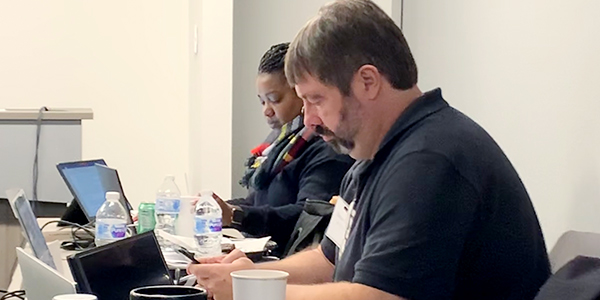NERC is requesting comments from stakeholders on changes to several reliability standards proposed by the team updating the requirements for determining and communicating system operating limits (SOLs), as well as on the team’s implementation plan (Project 2015-09).
The posting was approved by NERC’s Standards Committee at its previous meeting in June, with comments being accepted through Aug. 3. (See “SOL, Training Proposals Accepted,” NERC Standards Committee Briefs: June 17, 2020.) Balloting for the standards and implementation plan will be conducted from July 24 through Aug. 3.
Ballot pools will be formed through July 20; NERC announced Wednesday that existing ballot pools will be reopened to allow stakeholders to join if desired.
Range of Standards Affected
The standards posted for comment and balloting include:
- CIP-014-3 – Physical Security
- FAC-003-5 – Transmission Vegetation Management
- FAC-011-4 – System Operating Limits Methodology for the Operations Horizon
- FAC-013-3 – Assessment of Transfer Capability for the Near-term Transmission Planning Horizon
- FAC-014-3 – Establish and Communicate System Operating Limit
- PRC-002-3 – Disturbance Monitoring and Reporting Requirements
- PRC-023-5 – Transmission Relay Loadability
- PRC-026-2 – Relay Performance During Stable Power Swings
- TOP-001-6 – Transmission Operations
- IRO-008-3 – Reliability Coordinator Operational Analyses and Real-time Assessments
The standard drafting team’s questions for respondents mainly focus on the updated Facilities Design, Connections, and Maintenance (FAC), Interconnection Reliability Operations and Coordination (IRO) and Transmission Operations (TOP) standards because of the “numerous and significant concerns” raised by industry stakeholders during the SDT’s previous posting in 2018. Specifically, many commenters objected to the use of FAC standards to define SOL exceedances. In response, the team moved SOL determination from FAC-011-4 and FAC-014-3 to IRO-008-3 and TOP-001-6. The revised standards will leave the definition of SOL exceedances to transmission operators and reliability coordinators.
Additional changes to FAC-011, TOP-001 and IRO-008 deal with industry questions over compliance and administrative burdens from the new logging requirements. The SDT is asking stakeholders whether they agree with the “risk-based approach” for identifying and communicating SOL exceedances that is intended to let operators focus on mitigating issues rather than divert resources for reporting them.
The last major question for stakeholders involves the SDT’s decision to drop its proposed FAC-015 standard — which would have addressed criteria for determining SOLs — and move its requirements into FAC-014-3. FAC-015 was originally introduced because of the planned retirement of FAC-010-3 (System operating limits methodology for the planning horizon), but industry feedback convinced the team that FAC-014 would be a better place for the requirements.
Schedule Slips on Scope Expansion

The comment period for Project 2015-09 was originally planned to open in February, after the SDT reported in November that it had resolved most sticking points that had held it back since the 2018 posting, other than those involving logging and communication requirements. (See “Team Expects Feb. Posting on SOL Project,” SOL Project Team Preparing for March Posting.)
One reason the team’s business has taken longer to conclude than expected — according to NERC’s Project Tracking Spreadsheet, it is the oldest standard drafting project still in progress — is its decision to expand its scope beyond its original mandate. This has led to both an increased workload for the team and concern from industry participants about possible overreach.
“Our drafting team was established to modify a succinct set of FAC standards,” SDT Chair Dean LaForest of April Ballot Planned for SOL Standards.)




